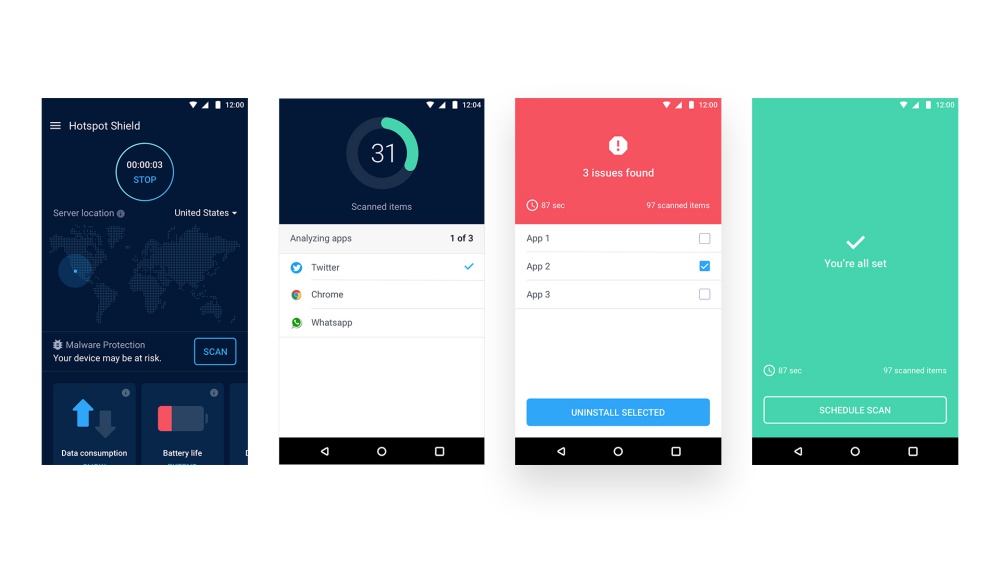How to get a Finnish IP address
The easiest way to improve your digital privacy is to switch your IP address using a VPN. We’ll …
We all know that our computers can get viruses, but what you might not know is that your phone can get a virus too. In this day and age, tablets and smartphones are just as vulnerable to getting a virus as your computer, and if your device becomes infected, it could wreak havoc on your life. Virus on phone? Here’s how to detect and remove Android malware — as well as check that your iPhone is running virus-free.
The most common way for a smartphone to get a virus is by downloading a third-party app. However, this isn’t the only way. You can also get them by downloading Office documents, PDFs, by opening infected links in emails, or by visiting a malicious website. Both Android and Apple products can get viruses. While Apple devices may be the least vulnerable, you are still at risk. Here are some of the tell-tale symptoms that your phone may have a virus:
There are, however, other explanations for these types of behaviors beyond just an infected device. It could also mean your phone is old and failing, your battery is dying, your operating system is outdated, or maybe you “rooted” or “jailbroke” your device. By piecing together the evidence, you should be able to understand whether a virus is indeed the problem.
To prevent getting viruses on your phone, keep your operating system updated and don’t venture outside of iTunes or Google Play when looking for new apps.

If you have a virus on an Android device, here’s how you can fix it: The first thing you should do is remove any apps that are questionable (apps you don’t remember downloading, basically anything that seems suspicious). Our Hotspot Shield VPN app for Android has a Malware Protection feature. With the click of a button, it will scan your device and inform you of any apps that contain viruses (see image above). You can delete the infected apps from within the Hotspot Shield app.

Once they are gone, you should restart your device. Make sure not to download any third party unapproved apps and you will keep your device safe. Your Android should also have antivirus.
If you have an Apple device, it is less likely you will get a virus. But if you do, there are ways to remove them. First, you should back up your device in iTunes or iCloud. Go to Settings > General, and then click “Reset.” Click on “Erase All Content and Settings.”
Once it’s done, reset your device, and then go through all of the steps to set it back up. At this point, you can go back to your iCloud or iTunes account and sync up your phone. If this doesn’t work, you can also take your device to the Apple Store and they will scan your smartphone for viruses or malware and remove them there and then.
As with all online security, the best line of defense is keeping your guard up and not clicking on suspicious links or visiting malicious websites. And while many of us may follow best practices on our computer, it’s important to remember that your phone is just as vulnerable.
